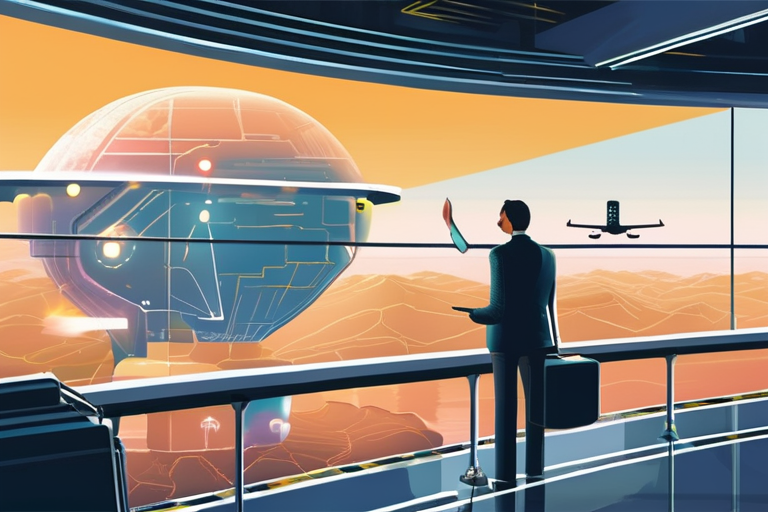The AI Traveler: How Artificial Intelligence is Redefining the Way We Explore the World
As I scrolled through my Instagram feed, a curated video caught my eye. The crystal-clear waters of the Maldives, the majestic architecture of Morocco's medina, and the vibrant streets of Tokyo – all in one mesmerizing clip. I was sold. I booked my ticket on the spot. But have you ever wondered how AI is behind these tantalizing travel recommendations? And what does it mean for our freedom to choose where we go and how we experience it?
Fahd Hamidaddin, Founding CEO of the Saudi Tourism Authority and President of the upcoming TOURISE Summit, believes that AI can be both a liberator and a guide. "AI has turned travel discovery into a personal canvas," he says. "Platforms like Instagram Reels no longer just show where to go; they curate journeys that feel tailor-made for each traveller." But is this a blessing or a curse? Does AI give us more freedom, or quietly steer our choices?
The Rise of Personalized Travel
In the past decade, travel has become increasingly personalized. Online platforms use machine learning algorithms to analyze our browsing history, search queries, and social media activity to suggest destinations that match our interests. This is not just a matter of showing us generic travel lists; AI-powered engines can build entire itineraries in seconds, taking into account factors like budget, time constraints, and personal preferences.
For instance, the popular travel booking platform, Expedia, uses natural language processing (NLP) to understand user queries and provide relevant recommendations. "We use machine learning to analyze millions of bookings and reviews," explains an Expedia spokesperson. "This helps us identify patterns and trends that inform our suggestions."
The Human Touch
But what about the human element? Don't we want to experience the thrill of discovery, the serendipity of stumbling upon a hidden gem? Fahd Hamidaddin acknowledges this concern: "AI can be both liberator and guide. It's essential for us to strike a balance between AI-driven recommendations and human intuition."
To address this issue, some travel companies are incorporating human curation into their platforms. For example, the luxury travel brand, Abercrombie & Kent, employs expert travel consultants who use AI-powered tools to create personalized itineraries. "Our consultants work closely with clients to understand their unique preferences," says a spokesperson. "AI helps us identify potential destinations and activities that align with their interests."
The Ethics of AI-Powered Travel
As AI takes on a more active role in shaping our travel experiences, questions about ethics and responsibility arise. Who owns the data generated by these platforms? How do we ensure that AI-driven recommendations respect cultural sensitivities and local customs?
Fahd Hamidaddin emphasizes the need for clear guardrails: "The industry must set standards for responsible AI development and deployment. We need to prioritize transparency, accountability, and inclusivity in our use of AI."
A New Era of Travel
As we navigate this uncharted territory, one thing is certain – AI has forever changed the way we travel. Whether it's through curated videos on Instagram Reels or booking engines that build entire itineraries in seconds, AI is becoming an integral part of our travel experiences.
So, will AI give us more freedom to explore the world, or quietly steer our choices? Perhaps the answer lies somewhere in between. As Fahd Hamidaddin so aptly puts it: "AI can be both liberator and guide. It's up to us to harness its power responsibly."
In this new era of travel, one thing is clear – AI has become an indispensable companion for our journeys. Whether we choose to follow its recommendations or forge our own paths, the future of travel has never been more exciting – or uncertain.
*Based on reporting by Artificialintelligence-news.*



 Hoppi
Hoppi

 Hoppi
Hoppi

 Hoppi
Hoppi

 Hoppi
Hoppi

 Hoppi
Hoppi

 Hoppi
Hoppi











